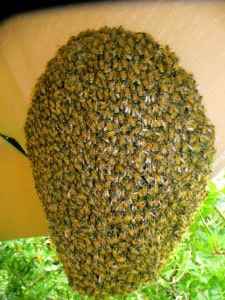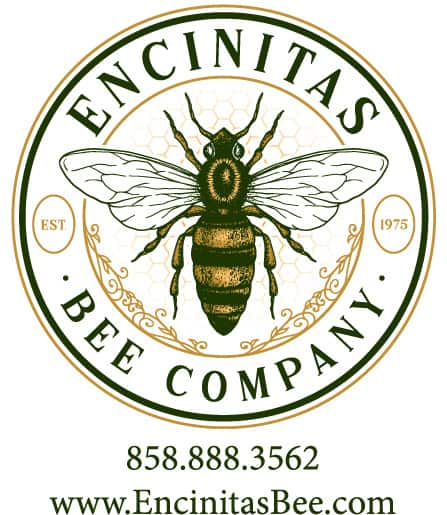 We got the pesticides that are killing the bee out of public land in the city of encinitas. Now we are looking at more natural ways to control the weeds and the pests. here are some tips on how you can do it at your own home. Managing Pests Safely Without Neonicotinoids:
We got the pesticides that are killing the bee out of public land in the city of encinitas. Now we are looking at more natural ways to control the weeds and the pests. here are some tips on how you can do it at your own home. Managing Pests Safely Without Neonicotinoids:
For Homes, Schools, and Other Indoor/Outdoor Areas
N
eonicotinoids (or “neonics” for short) are a group of chemicals that kill a wide range of insect pests, including aphids, whiteflies, ants
and termites. However, they can also kill and impair the survival of pollinators like honey bees, wild bees, and butterflies, and can also
impact beneficial insects, birds and other non-insect species. Beekeepers are reporting unprecedented losses, as high as 90 percent,
in hives across the county. Since we rely on many of these organisms for essential services like the pollination of a third of the foods we eat,
it is important for us to avoid using these chemicals and instead look for safer alternatives to managing pests in our homes, gardens, schools
and communities.
Concerned About Kids at School?
Children are especially vulnerable to pesticide exposures.
Talk to your school’s principal, administrator, or PTA about
developing a safe school pest management program that
would use least-toxic options for pest control. Provide
school with materials regarding the dangers of pesticide
use and the availability of alternatives.
A Project Of:
Beyond Pesticides &
Center for Food Safety
Chemical Name
Product
Imidacloprid
2 in 1 Systemic Rose &
FlowerCare, Termite Killer
Granules, Ortho Bug B Gone
Clothianidin
Arena Insecticide
Thiamethoxam
Meridian Insecticide
Dinotefuran
Hot Shot Roach and Ant Gel
Bait, Green Light Tree and
Shrub Insect Control
Acetamiprid
Ortho Flower, Fruit &
Vegetable Insect Killer
Common Members of the
Neonicotinoid Family:
Neonicotinoid-Free
Indoor Environments
S
everal neonicotinoid products are de
–
signed to kill indoor pests such as ants, ter
–
mites, bedbugs, as well as pests on indoor,
potted plants like whiteflies and aphids. Imi
–
dacloprid and dinotefuran are commonly
found in these indoor products and can be
applied in our homes, schools and other
indoor environments. However, you can
control pests safely without exposing your
family, children, and pets to neonicotinoids
and other toxic pesticides with these simple
measures:
Ants and Roaches:
Deny Access.
Caulk
all gaps and openings (entry points for
pests), preferentially with caulking.
Keep Clean:
Clean up and remove food
sources, including left over pet
food. Empty trash regularly and
store with a secure fitting lid.
Store outdoor garbage away
from buildings.
Keep Sealed.
Store food in glass
or plastic containers with tight-
fitting lids.
Monitor.
Inspect and monitor
cockroach hiding areas like cup
–
boards, moist areas and wall
cracks.
Use Least-Toxic Alternatives.
Cleaning away ants with soap
and water will disrupt the chemi
–
cal trails of ants. Boric acid baits
or gels, and diatomaceous earth
can also be used to target larger populations
of ants and roaches that
cannot be sealed out.
Tip!
Since most indoor
ants originate outside,
you can find their source
of entry by following
the ant trail. Cinnamon,
coffee grinds, chili pep
–
per, paprika, cloves, and
dried peppermint all re
–
pel ants.
Safer Product Sugges
–
tion: EcoSmart Ant and
Roach Killer.
Termites:
While some
alternative treatments
are available, prevention
is the best method.
Deny Access.
Unfinished
wood can be protected
from termite attack by
treatment with boric
acid. Eliminate all earth-to-wood contact,
including mulch, firewood, trellises, shrub
–
bery or tree branches that come in contact
with the structure.
Treat.
Desiccating dusts, such as diatoma
–
ceous earth and silica aerogel can be used
to prevent drywood termites. Choose a des
–
iccating dust that it is not combined with
a pyrethrin/pyrethroid, and food/garden
grade diatomaceous earth. Heat treatments
can also successfully kill termites.
Secured Baits.
Many bait stations contain
a toxicant that is brought back to the col
–
ony by the foraging termites, after which
they are destroyed. Baits greatly limit the
amount of a pesticide used compared to
the traditional liquid termiticide soil barrier
method of control, and decrease chances of
exposure to the chemical because the baits
are well contained. They are, however, still
poisons and should be used with utmost
care and only as a last resort.
Tip!
Ensure good drainage away from build
–
ing structures – point downspouts or gutters
away from the structure to minimize attrac
–
tive water sources.
Safer Product Suggestion: Bio-Blast® Bio
–
logical Termiticide.
Bedbugs:
While there is no magic bul
–
let solution to bed bug eradication, there
are many ways to effectively control them
without the use of dangerous chemical pes
–
ticides. Many pesticides are less effective
against these persistent pests, due to a grow
–
ing global resistance.
Deny Access.
Caulk and seal crevices to pre
–
vent bed bugs from entering your home.
Inspect clothing and bags after travel to re
–
move hitchhiking bugs. Encase mattresses
and box springs and make sure the encase
–
ment does not contain synthetic pesticides
impregnated in the material.
Keep Clean.
Vacuuming can remove visible
bed bugs, dead bed bugs and their drop
–
pings. Use a stiff brush to dislodge eggs in
cracks and crevices and use a vacuum attach
–
ment that does not have bristles to get into
the corners. Be sure to discard the bag im
–
mediately after vacuuming.
Launder Infested Fabrics and Clothing.
Wash
and dry clothing at the hottest setting the fab
–
ric will allow to kill bedbugs and their eggs.
Heat Treatments.
This will kill all stages of
bedbugs and involves exposing the bugs to
extreme hot temperatures (~120
o
F). Stream
or heated ambient air maybe used. Many
pest control companies provide this option,
but you may have to ask for it.
Tip!
Eliminate clutter. Getting rid of as much
clutter as possible will help you locate and
eliminate infestations.
Safer Product Suggestion: Food-grade Dia
–
tomaceous Earth.
Treating Indoor Potted Plants:
Fatty
acid soaps/ insecticidal soaps.
Commonly
used soaps containing potassium and co
–
conut oil are effective in controlling many
soft-bodied insects, such as aphids, flies, and
mites. Lightly spray all foliage and branches
when pest activity is apparent, and follow
product application directions.
Biological oils and herbal repellents.
These
oils and extracts are effective in controlling
aphids, adelgids, spider mites, mealy bugs,
sawfly larvae, whiteflies, plant bugs, cater
–
pillars, scales, and some plant diseases like
rusts and mildews. Some materials in this
category include garlic and pepper extracts,
neem, and tea tree oil.
Safer Product
Suggestion: Safer Insect Kill
–
ing Soap.
What is Diatomaceous earth, and where can I find it?
Diatomaceous earth is the fossilized remains of minute aquatic organisms, whose shells
are naturally high in silica. Most diatomaceous earth products come in powder or dust
form, and while it is generally safe to humans and other vertebrates, diatomaceous earth
is toxic to many insects, including bed bugs, cockroaches, spiders, ticks, and fleas. Diato
–
maceous earth pesticide products can be found in many garden stores, and 100% food-
grade diatomaceous earth products are available online and in some health stores.
Neonicotinoid-Free
Outdoor Environments
Homes, Schools, Playgrounds,
and Other Landscapes:
It can be fun
spending time outdoors caring for our home,
school, or community lawns and gardens.
But outdoor application of pesticides can be
detrimental to nearby foraging bees, butter
–
flies and other beneficial species even after
application, as neonicotinoid pesticide resi
–
dues can remain in plants, soil, and water for
long periods of time, even years! If your out
–
door plants or lawns encounter unwelcome
pests, there are safer ways to manage these
creatures.
Prevention.
Many pest species, aphids in
particular, are partial to plants fertilized with
excess nitrogen, typical of synthetic fertilizer
applications. Instead, opt for fertilizing with
organic compost, compost teas, or fish emul
–
sion as these release nitrogen and other nu
–
trients slowly into the soil. Create a diverse
garden or backyard with a variety of native
flowers, grasses, and bushes to encourage nat
–
ural predators like birds or ladybugs. For lawns,
maintain a high mowing
height (>2 inches) and less
frequent watering.
Monitor.
Determine you
infestation level to decide
the appropriate level of
action. Infestations can
be detected early by ex
–
amining plants and trees
for eggs sacs or adults.
Low level infestations
will not do much damage. Some bugs can be
handpicked and removed or destroyed.
Treat.
Insecticidal soaps and biological/es
–
sential oils can also be used on outdoor
plants and vegetation to control pests. In
addition, pheromone traps can be used for
certain species. For lawns, nematodes, or
Ba
–
cillus Thuringiensis
(Bt) can take care of many
soil swelling insects.
Tip!
Certain plants and herbs are natural
repellents to insect pests, or attract natural
predators. Plant these intermittently among
garden plants. Ask your local garden supply
store for species native to your region.
Tip!
When outdoors, make sure bees and
other beneficial insects are not foraging be
–
fore you use botanical/essential oil sprays, as
direct exposure to high doses may smother
and harm bees. Apply early mornings or in
late evening, when bees are least active.
For more information, visit
www.BEEprotective.org
858.888.3562
encinitasbeecompany@gmail.com
